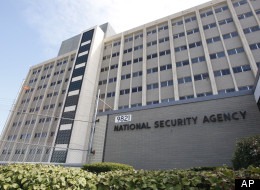Inside 'Prism' Success: Even Bigger Data Seizure
Sunday, June 16, 2013

It may be that, discussed in isolation, the government can avoid talking about what Feingold and Wyden and others have called a backdoor. Which is probably why they don’t want us to “confuse” (that is, understand the relationship between) the business records and content access.
Part of the same issue here:
“Note that even if the real target is the domestic phone number, an analyst working from the metadatabase wouldn’t have a name, just a number.”
An analyst working from the metadatabase wouldn’t necessarily have a name *provided by the telco*. If the metadatabase, or another database created from it, has numerous other columns added by NSA’s indexing and parsing algorithms, the computers can probably guess a name for a large number of the records and then tie in all kinds of other public and private files. In this case, it would probably be easy for an analyst to sift for all contacts with 2-3 degrees of a target who probably have an Muslim-sounding name or probably live in an Arab neighborhood. The FBI has also been getting phone books. So they’ve got numbers and names via other means, at least for landlines.
And getting numbers/names of cellphones isn’t all that hard, either. If they’re not classified as business records that they can just get like the metadata, they can certainly afford to buy all the commercial databases that contain this stuff. [FYI - Bush's CarlyleGroup bought out the Yellow Pages and Comcast a few years ago.]
Plus, the US ChamberOfCommerce was using this outfit to spy on journalists that were giving out information about dirty business episodes. They did a dragnet type of thing on GlennGreenwald and BradFriedman. That instance alone went beyond any reasonable personal rights and Constitutional values. Then the government tried to cover up and give some lame reason for why it was necessary for Chamber and Chamber business partners to do that to people.
The suspicion here is that that extra data — the meta-meta-data or whatever they want to call it, is so robust that they can usually do any invasive thing they want just by querying it and never looking at the cells that contain original metadata from the telcoms. The robustness is *provided* by the telcos’ metadata dumps because all the associations are generated from that database, but that’s done automatically without any pesky “voyeuristic” humans. Since the humans are only looking at the meta-meta-data, which just contains highly technical, esoteric, nothing-to-see-here information (like people’s real names, addresses, employers, travel history…), it’s as Constitutionally American as Betsy Ross eating a McDonald’s apple pie.
Read the Article at HuffingtonPost









0 comments:
Post a Comment